2025 was defined by major blows to the ability and strength of science. The Trump administration...
2022 Research Trends: COVID-19, Open Access, Ukraine, and More
The COVID-19 pandemic continued unabated as countries around the world lifted restrictions and encouraged life post-masks. Meanwhile, a devastating war broke out in Ukraine. Alongside the chaos, scientific research continued to evolve in drastic and surprising ways to address these crises and make significant advances in mental health, artificial intelligence, and climate research.
Read on to see some of the notable trends in 2022 research using data from NewsRx’s BUTTER research discovery platform.
COVID-19 research
COVID-19 research continues stronger than ever. In fact, the 6,000+ peer-reviewed articles published this November outnumbered all but two other months this year, so there is no slow-down in research interest in this emergent virus. However, the number of COVID-19 preprints did steadily drop through the year.
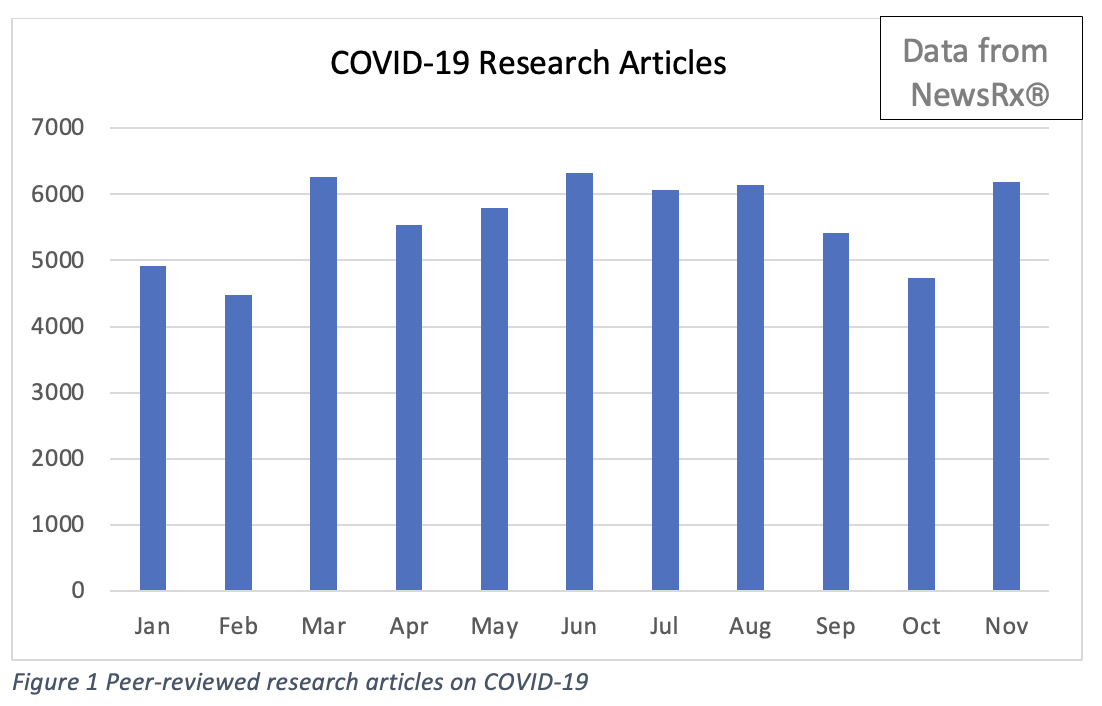
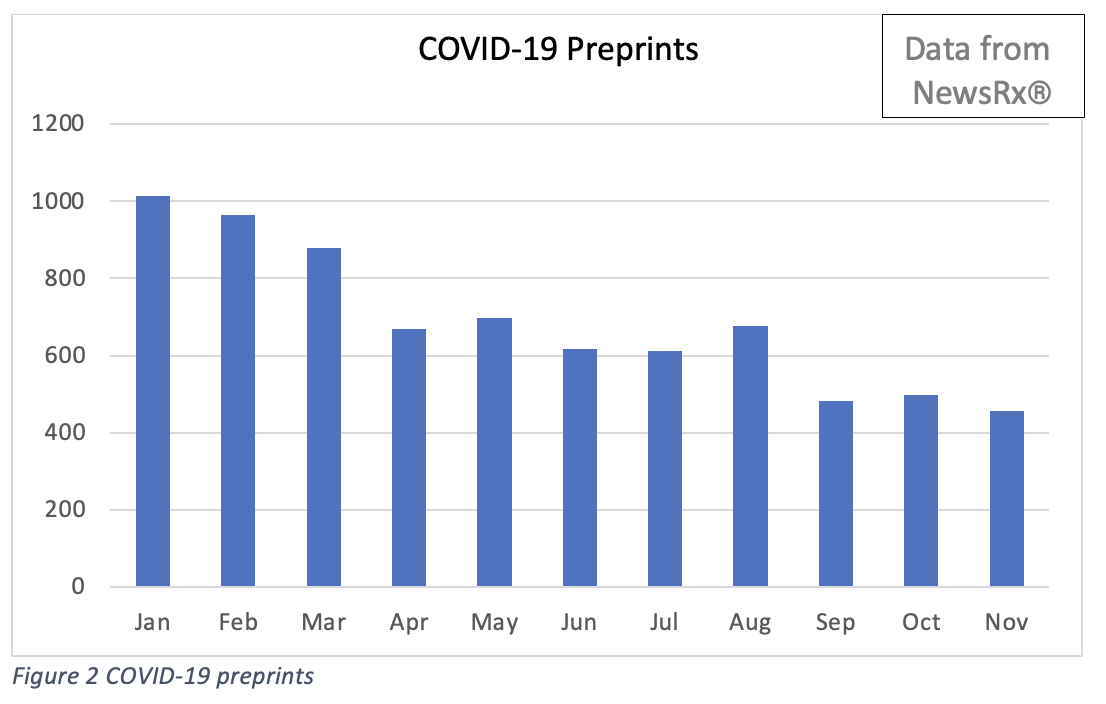
This trend may point to either a return to normalcy after a massive preprint boom in 2020 and 2021, or simply show that more COVID-19 research is advancing directly to peer-reviewed publication without pursuing preprint publication. The dire element of timeliness that was keenly felt early in the pandemic may have diminished.
The biggest research topics in COVID-19 this year were the CDC & FDA, telemedicine, sustainability, HIV/AIDS, education, and Remdesivir. That marks a shift from 2021, where biotechnology and artificial intelligence were also major topics, so the proportion of articles on public health and policy grew significantly.
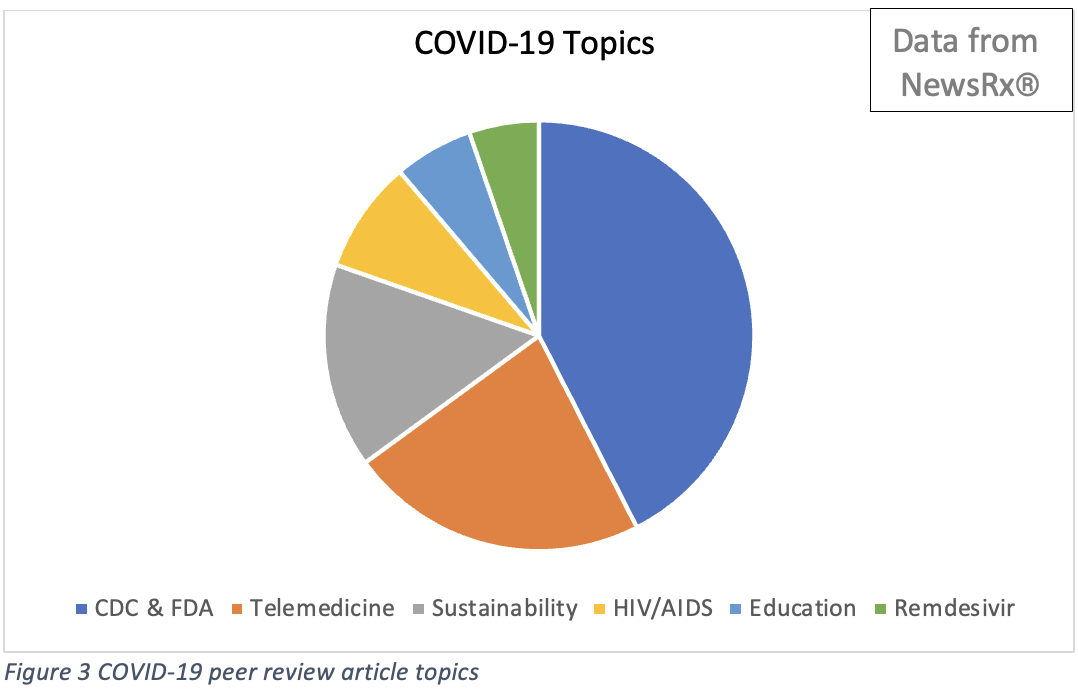
One essential area of research that saw substantial advancements was long COVID. The number of articles on the subject grew all the way to 402 this year, compared to just 5 in 2020.
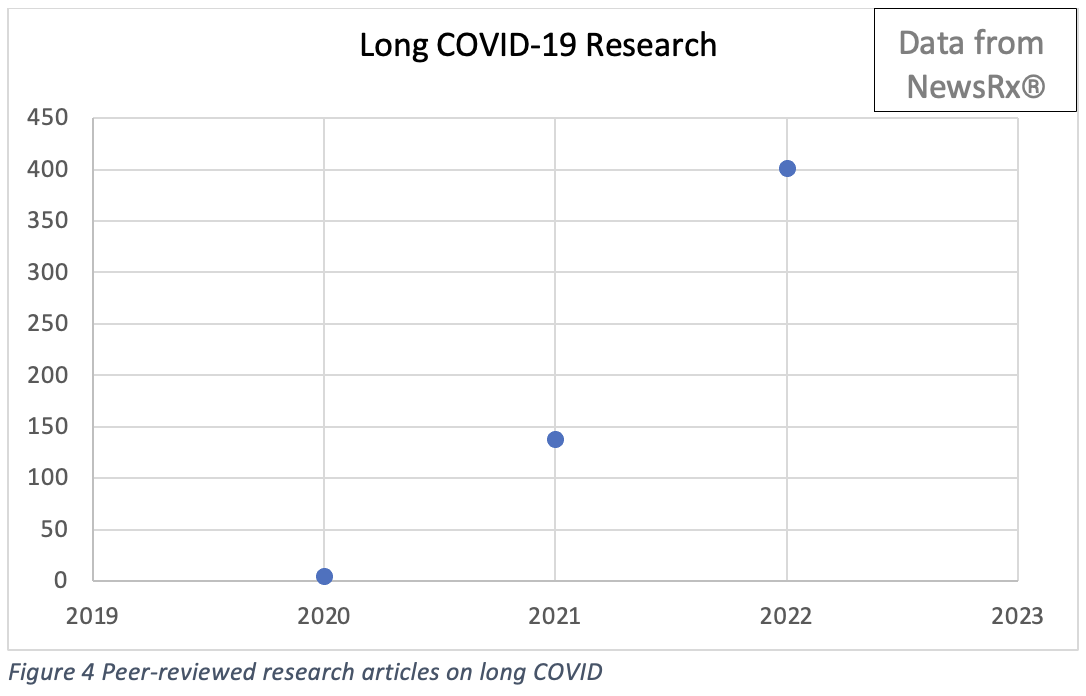
Open access research booms
One inspiring trend is the continuing rise of open access research, which could be seen in 2022 across all scientific disciplines. From 2020 to 2022, the percentage of open access articles out of the total number of peer reviewed research studies grew from 37% to 60% in COVID-19 research, 29% to 57% in breast cancer research, and 23% to 47% in mental health research. The biggest leap happened between 2020 and 2021.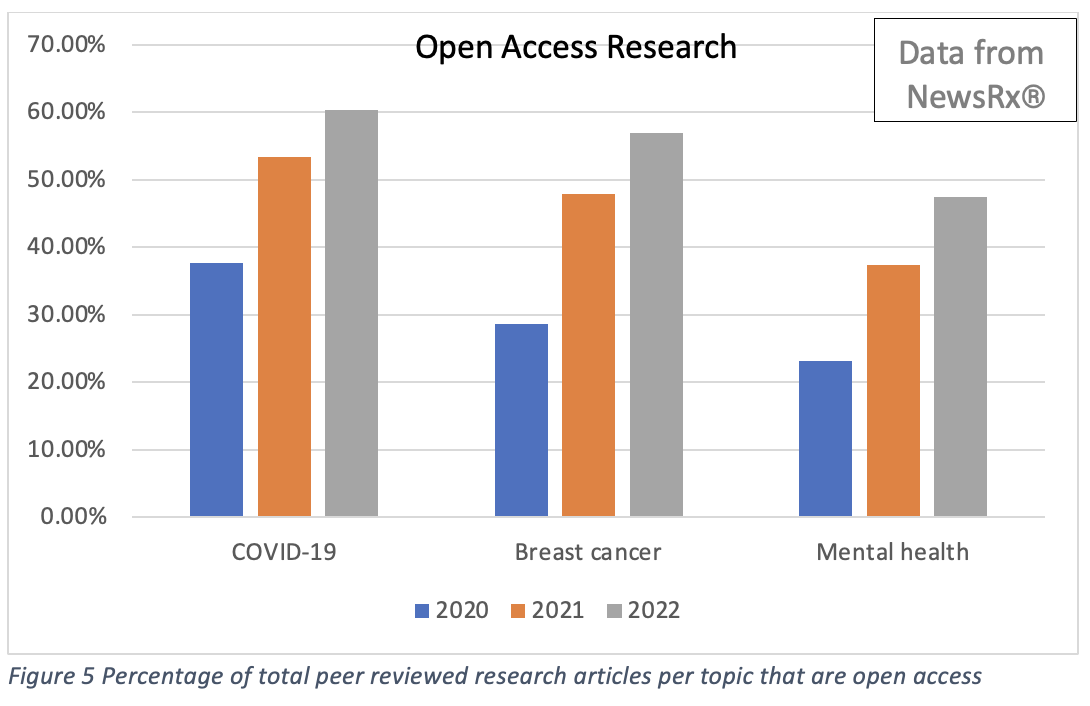
The war in Ukraine
Russia’s massive assault on Ukraine changed the world forever, throwing the lives of Ukrainian civilians and scientists into danger and tumult. (Check out our latest article on the topic.) It goes without saying that scientists across disciplines studied the effects of the war and analyzed it in disciplines from medicine to economics and military studies.
It took a few months for scientists to catch up with the rapid pace of the war, but ever since late summer, a hefty volume of research has emerged, including 62 peer reviewed articles in November. In terms of subject areas, law had the highest volume of research, followed by health & medicine, economics, military & defense, and COVID-19.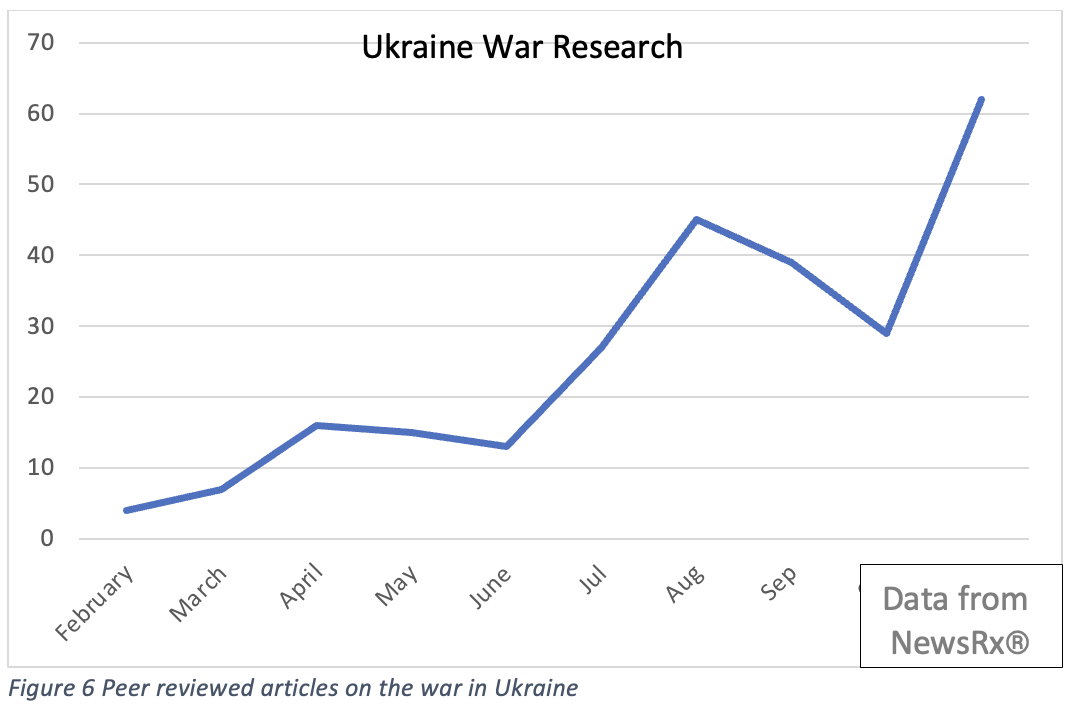
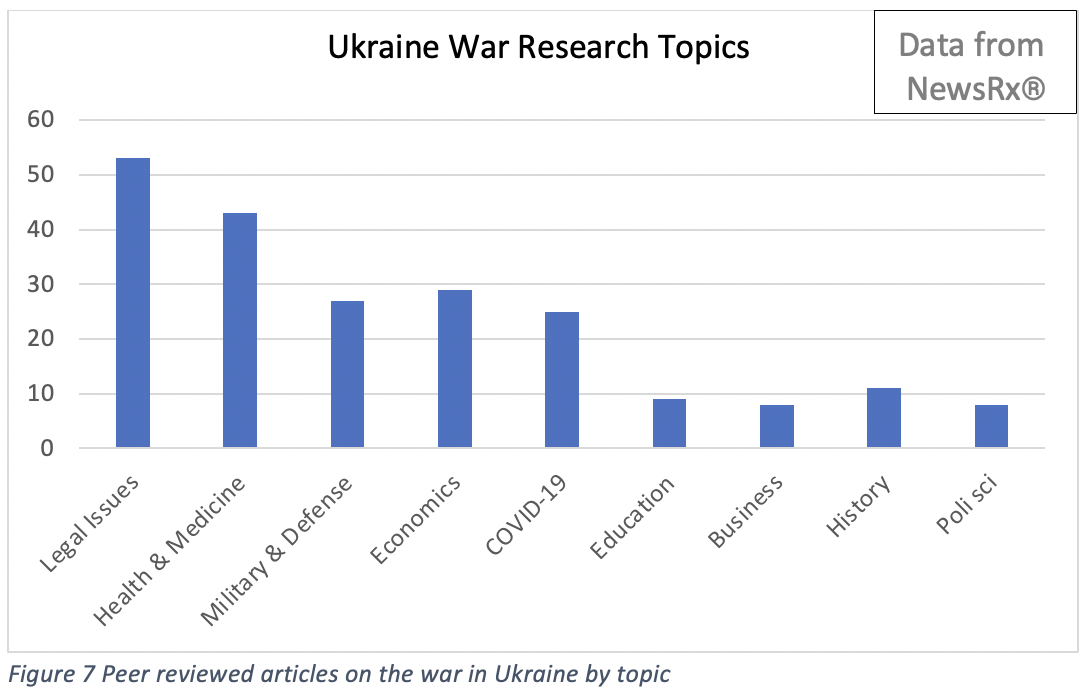
Health & medicine
An analysis of peer-reviewed research over the last four years reveals just how drastically COVID-19 has attracted the attention of the scientific world, and for good reason. The pandemic caused the volume of research on leading topics like breast cancer, HIV/AIDS, colon cancer, obesity, and more to decrease. Other areas of interest closely tied to the pandemic, like public health and mental health, have remained steady or seen gains.
But no gain, of course, compares to the emergence of COVID-19. We recorded a whopping 36,000+ peer-reviewed research articles on the deadly coronavirus. It remains to be seen if COVID-19 will continue to occupy its primary position in 2023, but it seems likely.
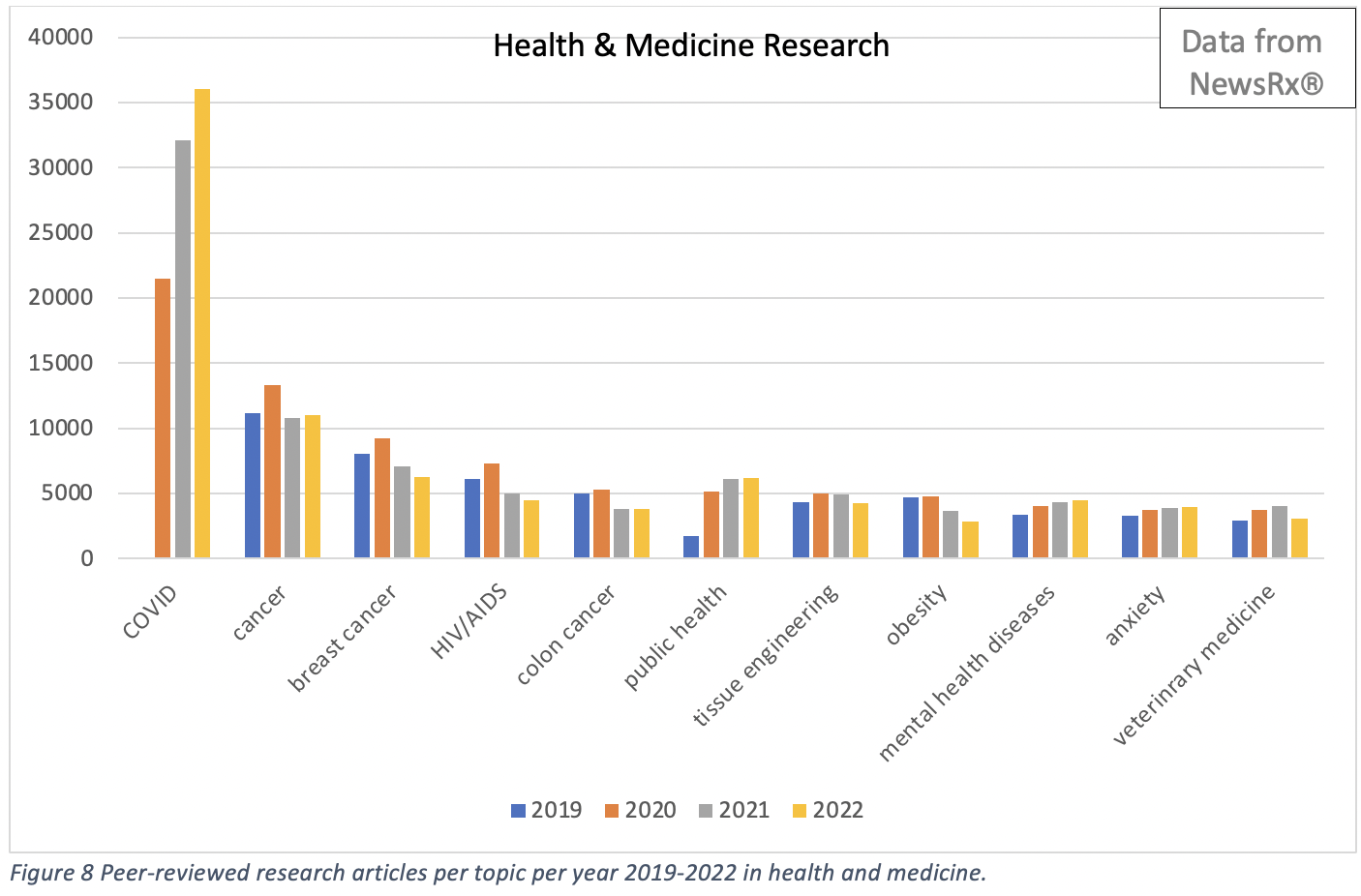
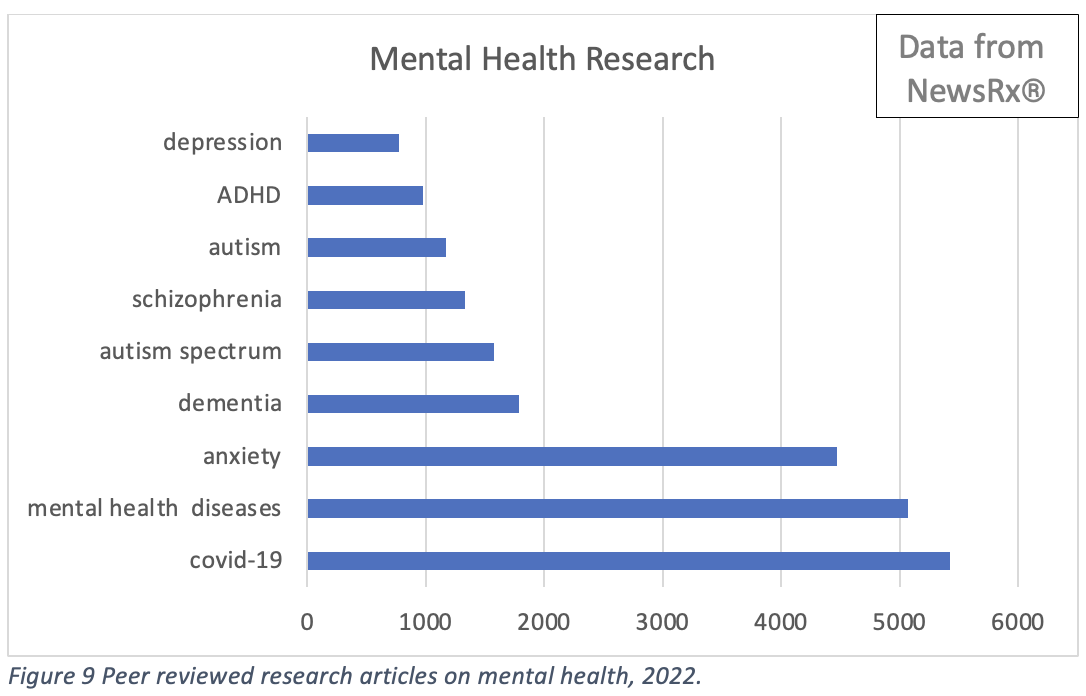
The change in time over some of these top subject areas is also interesting to observe. Since 2018, research on autism spectrum and autism has surged from 1327 articles in 2018 to 2742 in 2022. Anxiety also showed impressive growth as areas of study.
However, research on schizophrenia has declined since 2018, and some areas like addiction, dementia, and bipolar disorder all peaked in 2019-2020, before the pandemic commanded more attention from the scientific community. Overall, the number of peer-reviewed research articles on mental health increased greatly up until 2020, before leveling off during the pandemic.
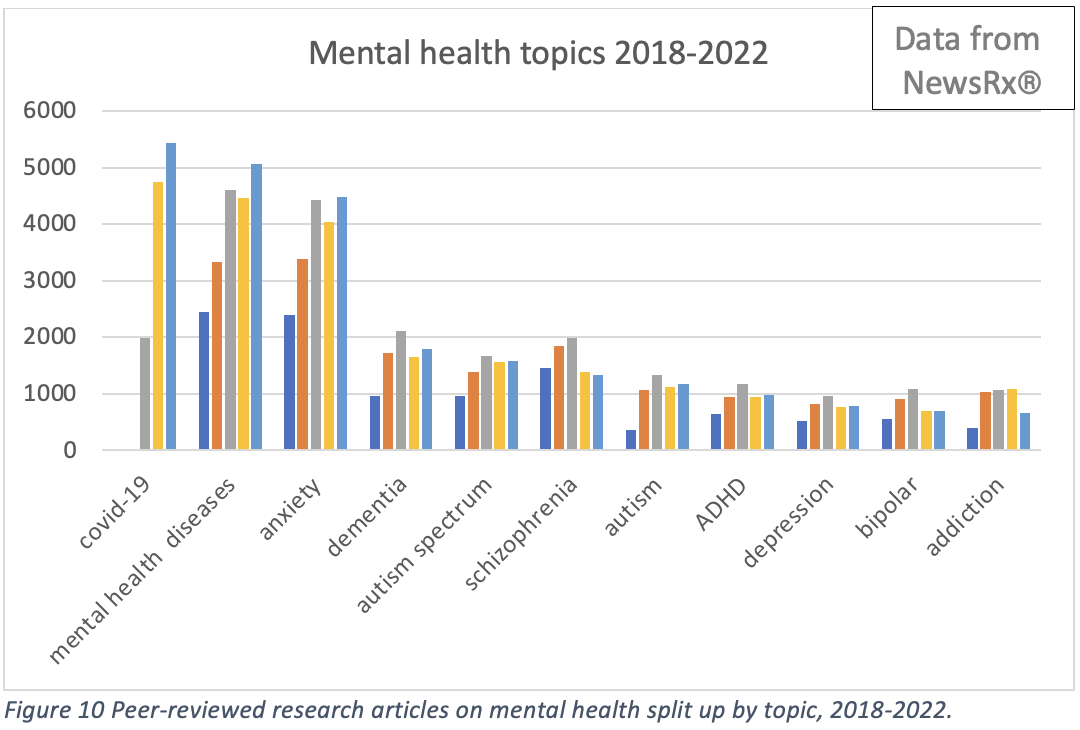
Artificial intelligence
The surge in machine learning and artificial intelligence research has been nothing short of remarkable to witness over the last ten years. (There were just 899 peer reviewed research articles on AI in 2012. In 2022, there were nearly 22,000).
Many of these early 2010s studies were focused on machine learning, medicine, and energy. And it appears that these topic areas have not changed much in the last decade. Health and medicine, networks, and machine learning are by far the biggest contemporary topics in AI research, with COVID-19, IT, robotics, sensors, and pattern recognition also in the mix.
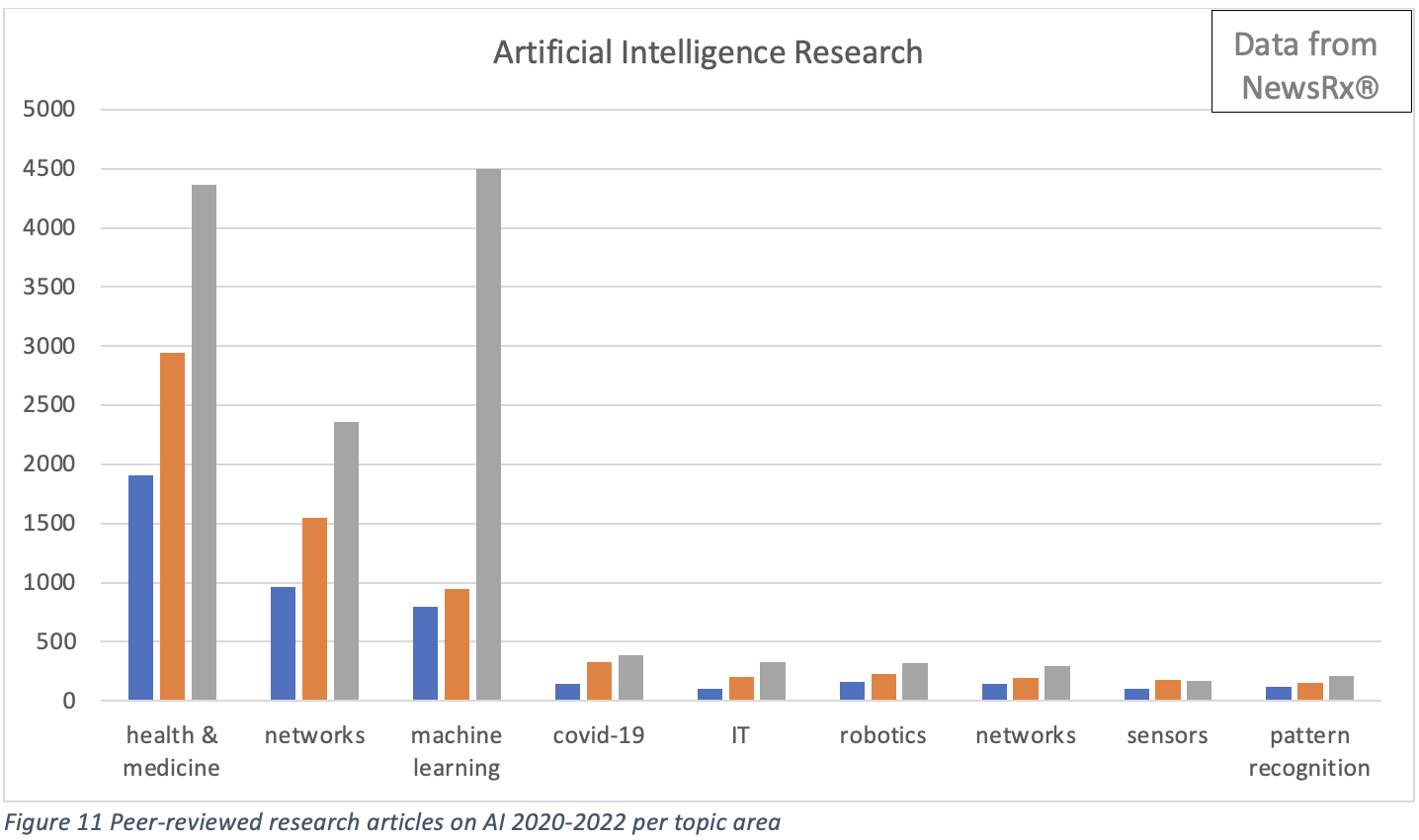
All research areas show growth across the board, and the surge in machine learning AI research in 2022 is remarkable given that machine learning was already such a core component of all AI-related studies. The appearance of Open AI’s ChatGPT and AI-created artwork in the mainstream news discourse seem to follow alongside this flourishing field of study.
Climate change
After another one of the hottest summers on record, the climate crisis is capturing more news and political attention, but is showing surprisingly modest growth as an area of research in comparison to areas like artificial intelligence. Over the last three years, fields like renewable energy and sustainable development grew, but the number of studies on climate models, energy, pollution, and remote sensing all stagnated or declined.
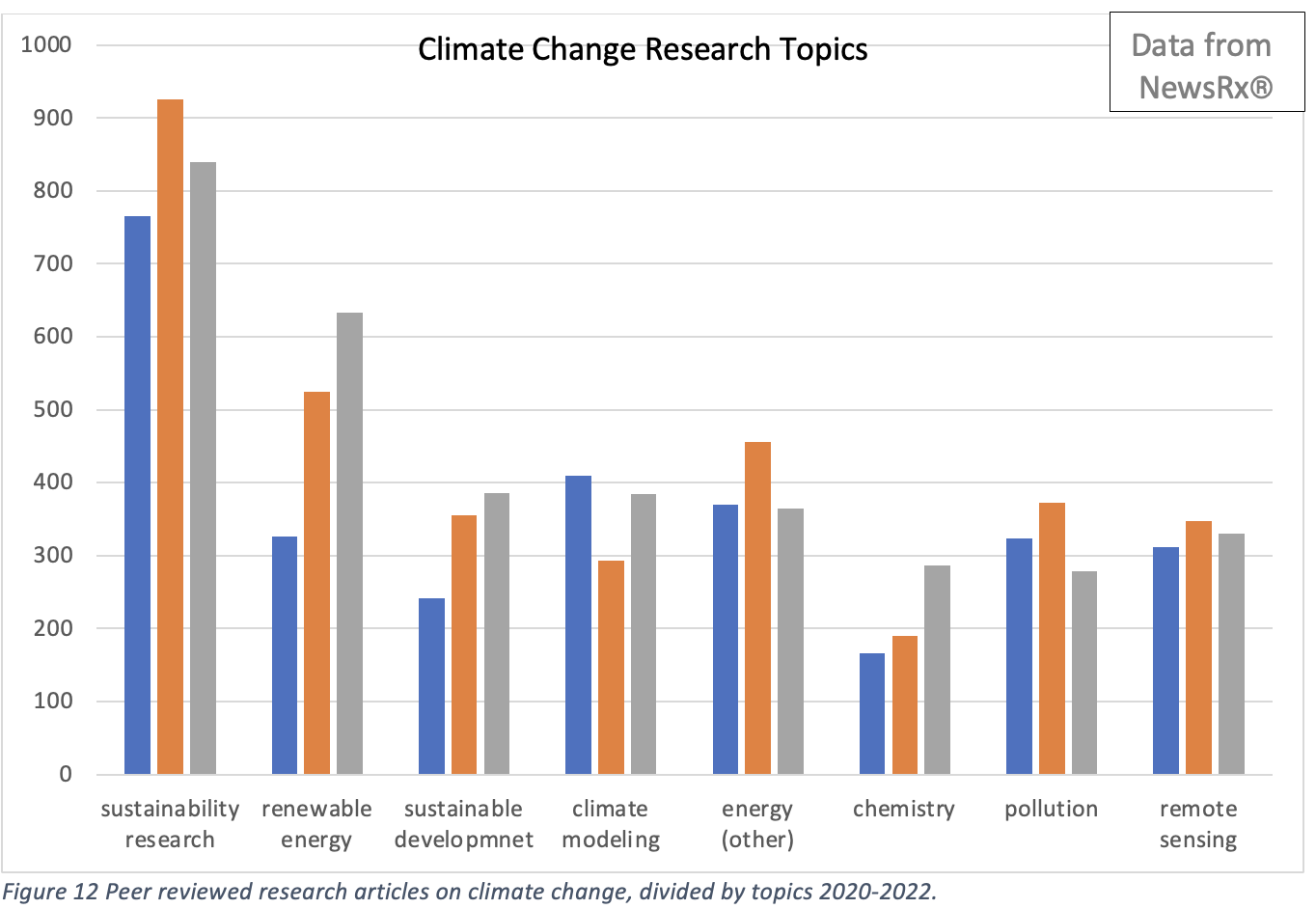
The most impressive growth in recent years has been seen in the field of sustainable development. There were just 277 peer-reviewed studies on the topic as it pertains to climate change in 2016, a number today was nearly 2500 in 2022,
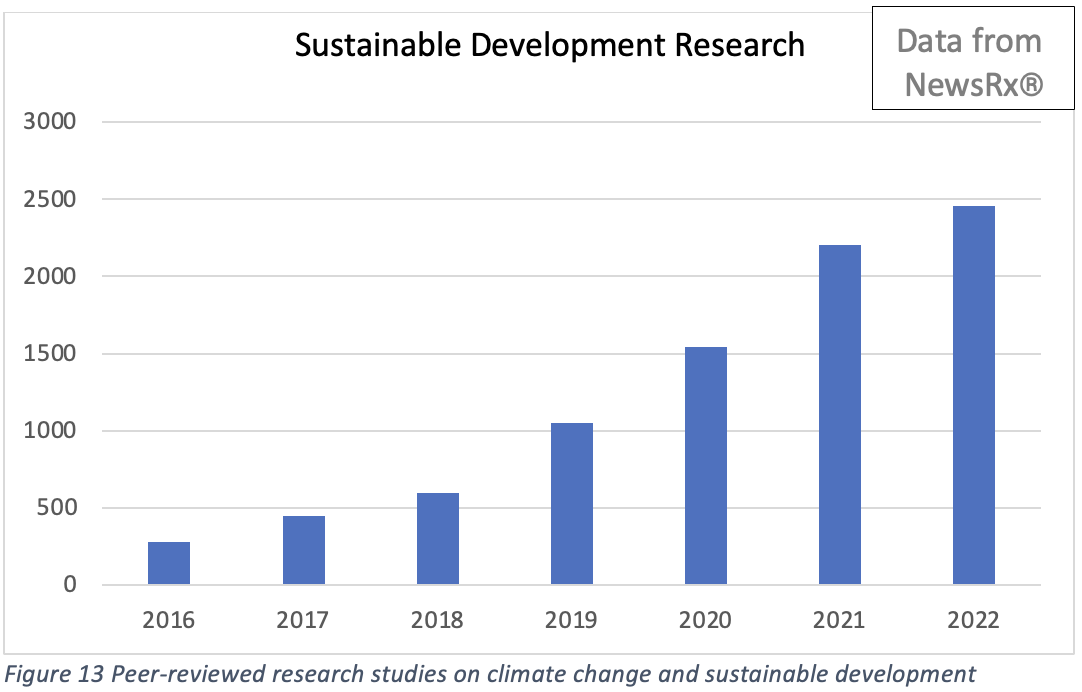

.jpg?width=50&name=DSC_0028%20(1).jpg)


